SUMMARY: OVERALL TESTING DATA

DEVELOPMENT
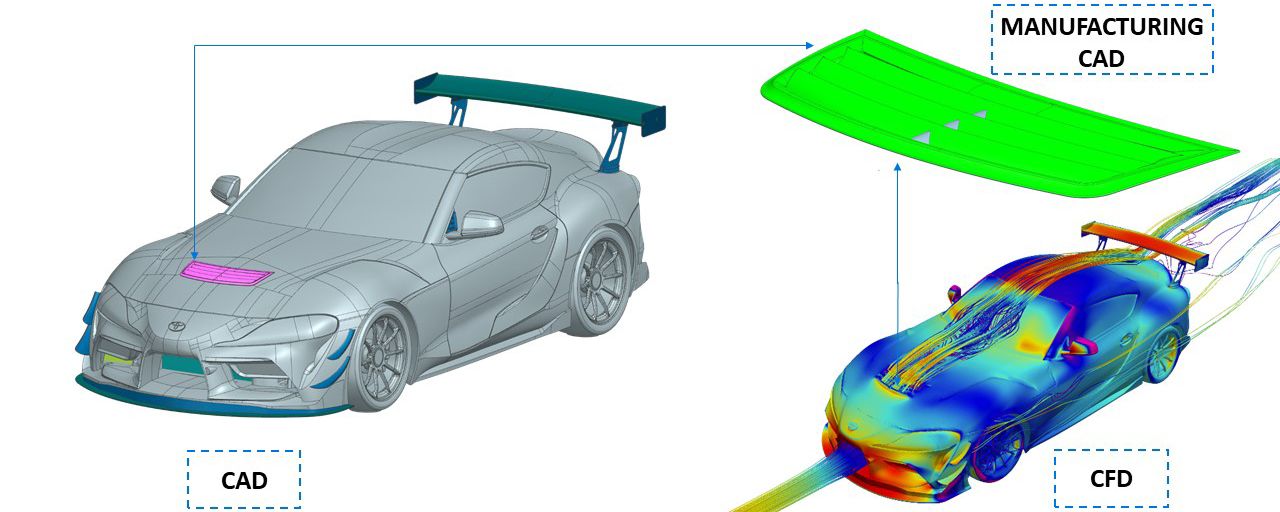
SENSOR LOCATIONS
All of these locations are separate thermocouples connected to an AIM EVO5.
(Inside Intake Tube, Just After Air Filter)
4.Underside of Hood
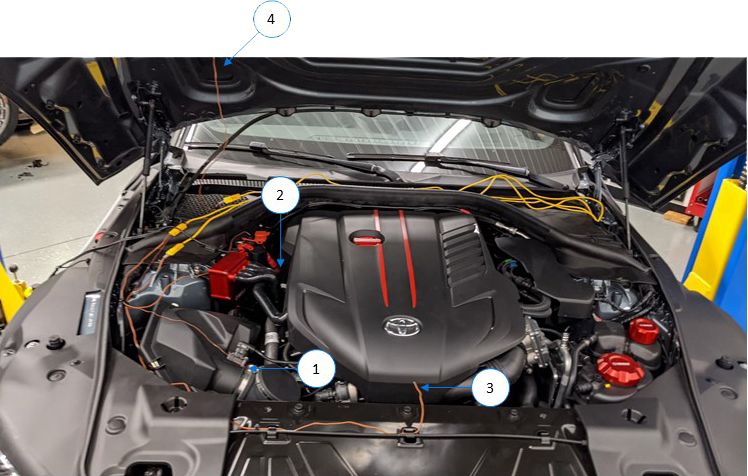
LOUVER TEST

Louver [No Tape on Louver]
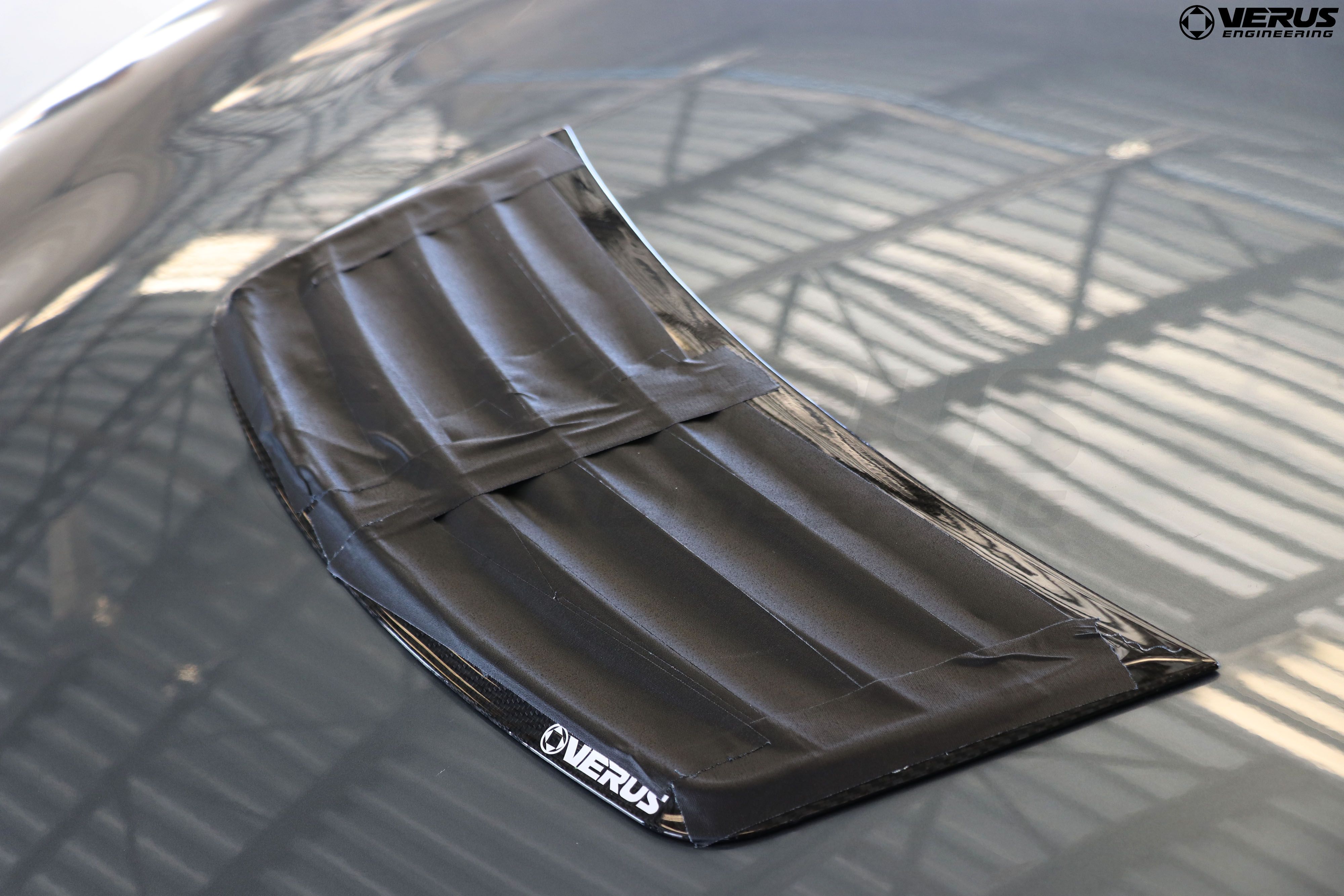
No Louver [Taped off Louver]
INTAKE AIR TEMPERATURE
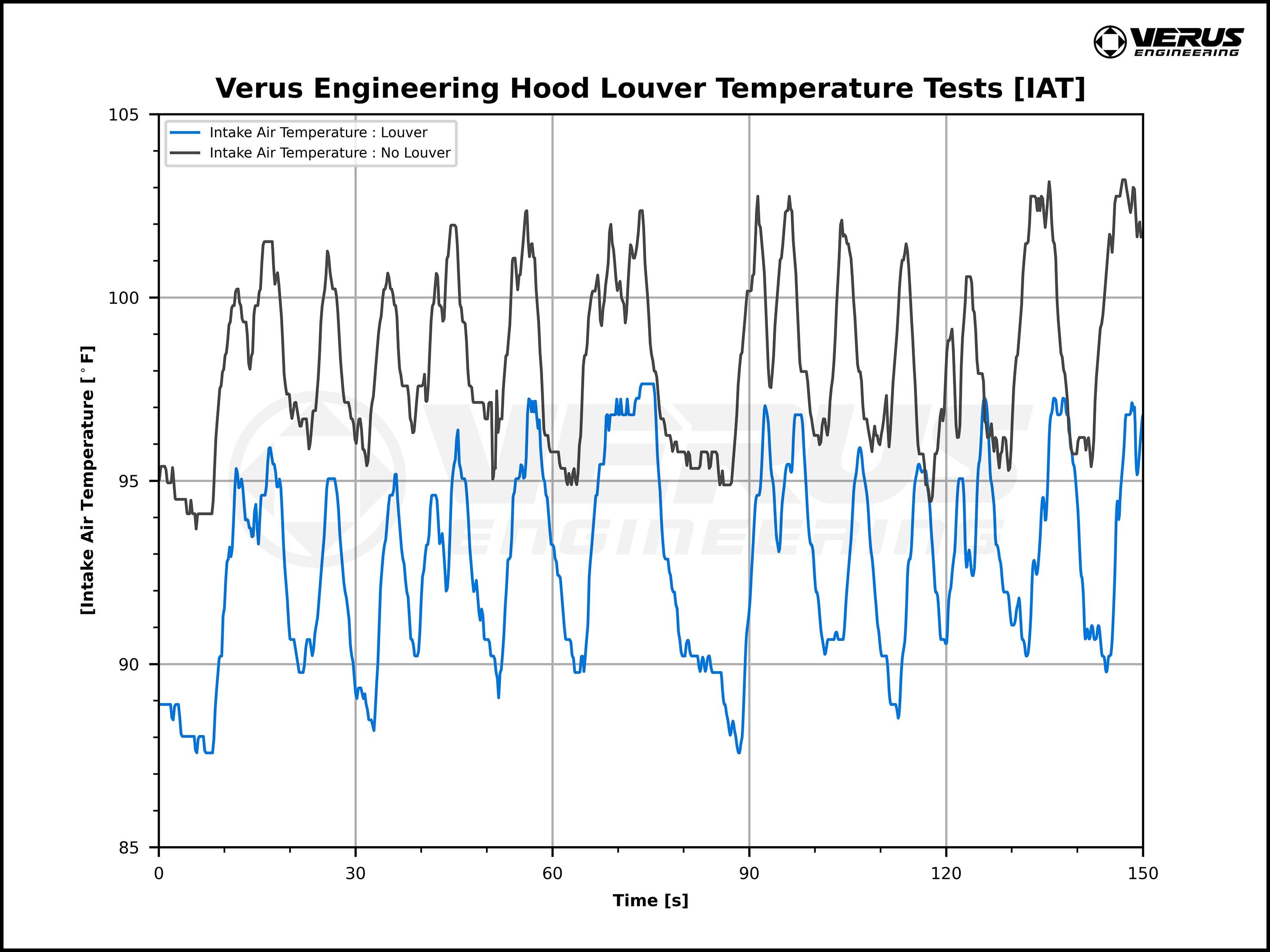
The temperature just after the airbox [Intake Air Temperature] is around 4-6 degrees Fahrenheit lower with the Verus Engineering Hood Louver. The hood louver helps evacuate the higher temperatures in the engine bay which helps drop the intake air temperature. Lowering the IAT’s can increase horsepower output.
TURBO HEAT SHIELD TEMPERATURE
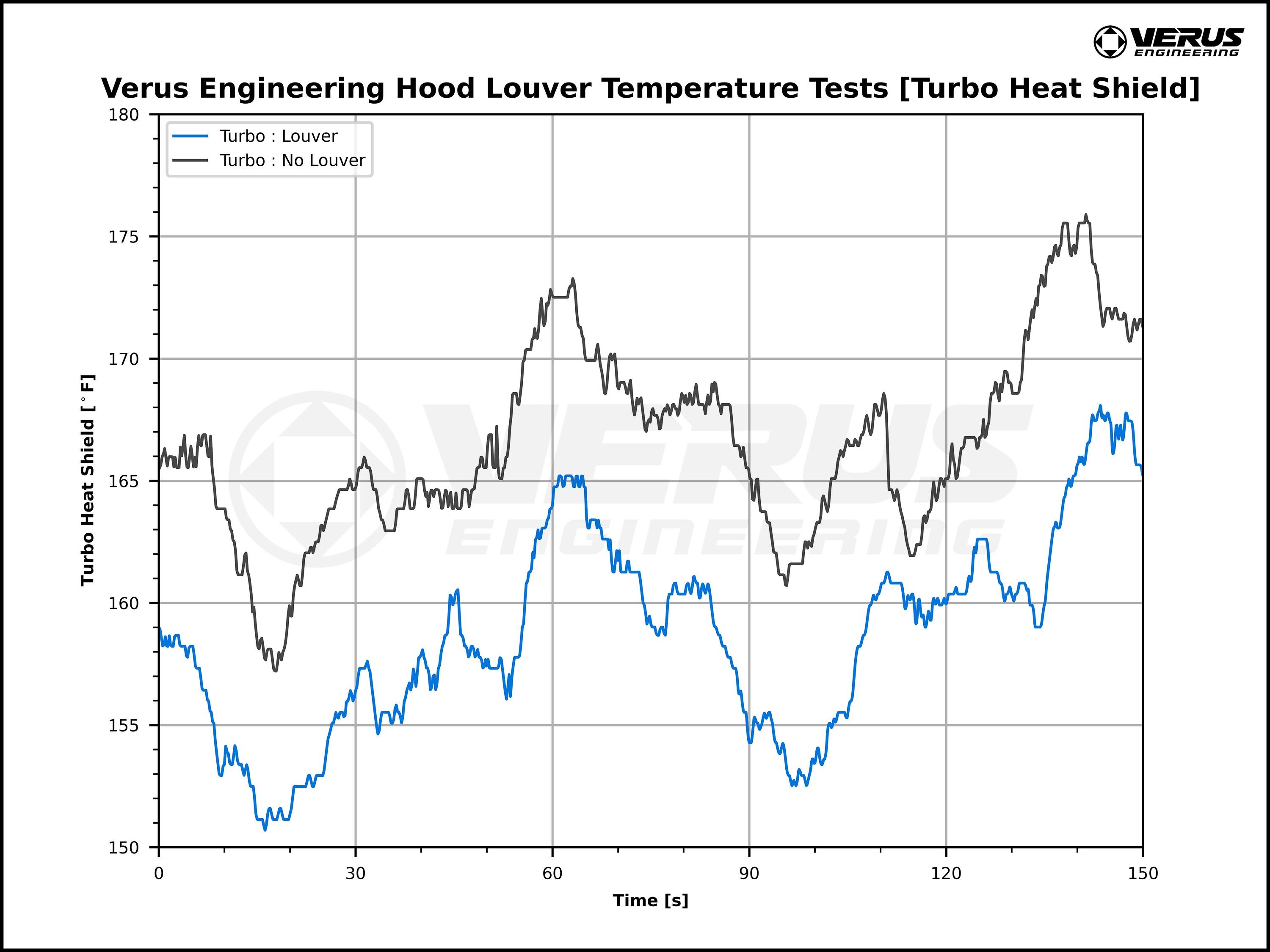
The temperature around the turbo heat shield and turbo is around 6-8 degrees Fahrenheit lower with the Verus Engineering Hood Louver. The hood louver helps evacuate the higher temperatures in the engine bay which help evacuate the heat produced by the turbocharger and manifold.
RADIATOR AIR SIDE OUTLET
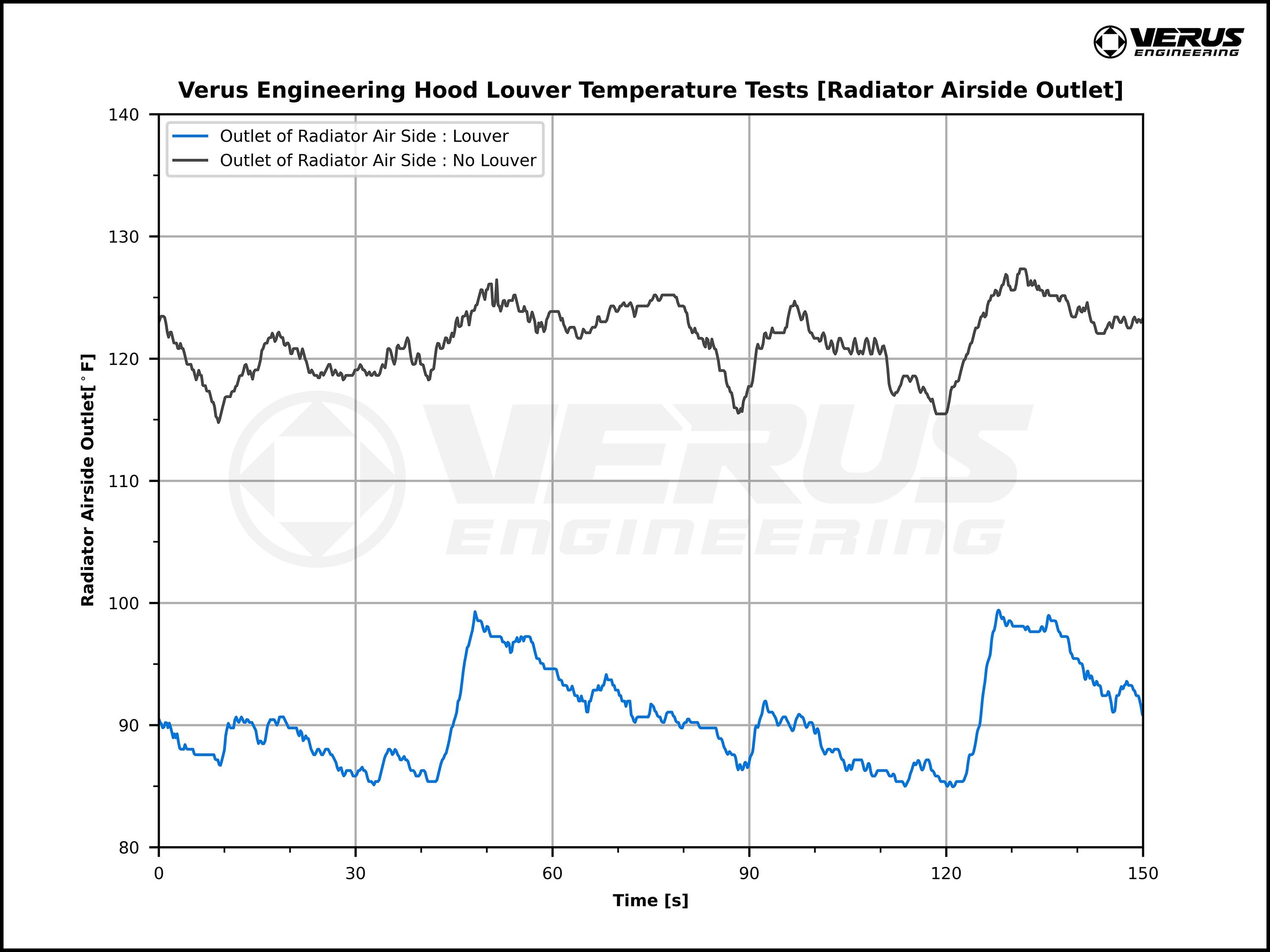
The temperature behind the radiator [Outlet of Radiator Air Side] is around 25 degrees Fahrenheit lower with the Verus Engineering Hood Louver. The hood louver helps evacuate the hot air that has passed through the radiator.
UNDERSIDE OF HOOD
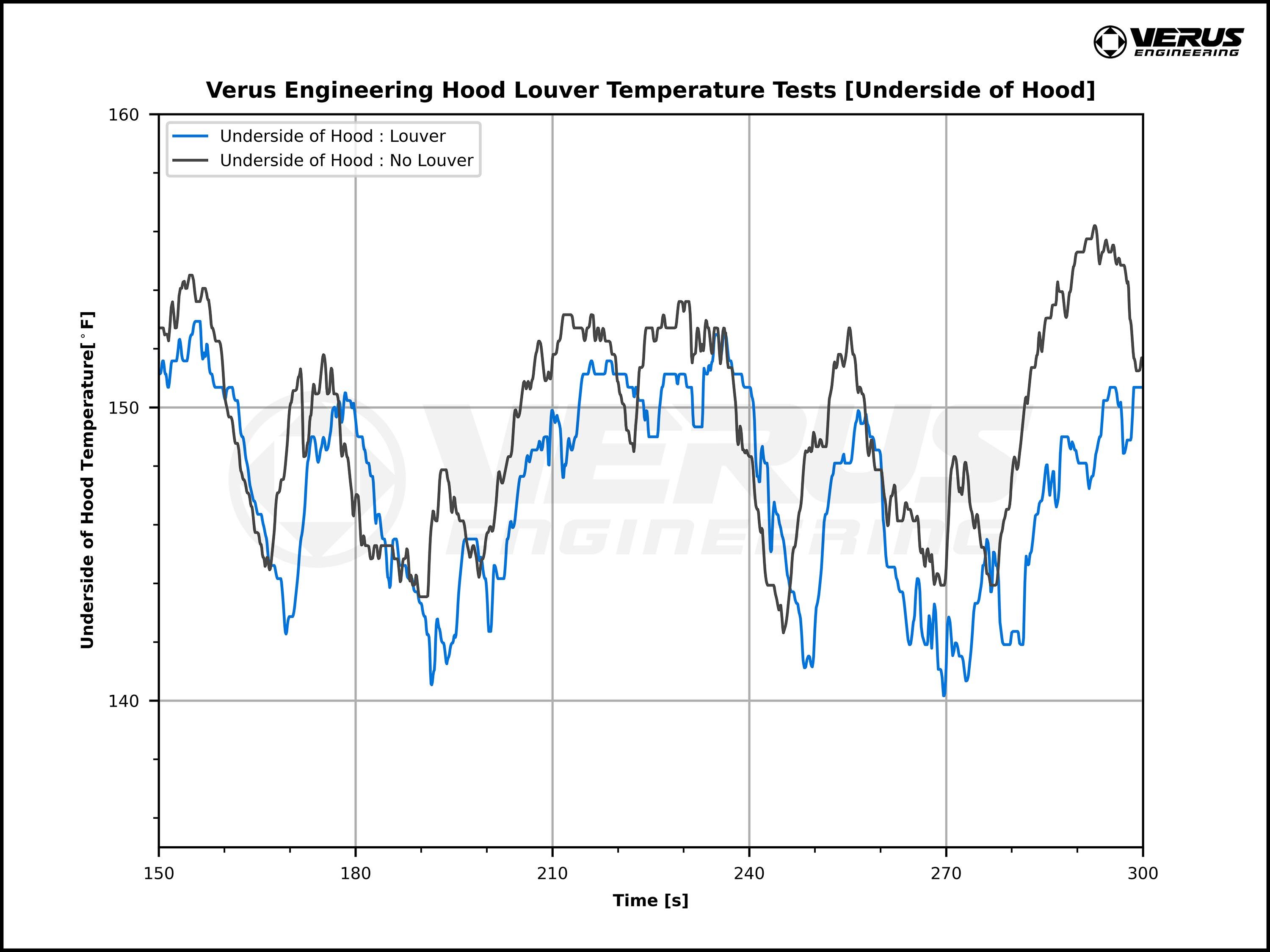
The temperature under the hood is around 3-5 degrees Fahrenheit lower with the Verus Engineering Hood Louver. The hood louver helps keep the engine bay cooler by evacuating the hot air from the engine bay.
CONCLUSION
We saw temperature decreases in all (4) locations we placed sensors when allowing the hood louver to vent the engine bay air on track.
While at speed, we had issues keeping the tape on the louver after 5 laps. The louver is evacuating high-pressure air, which increases downforce as well.
In the garage, when we came to a stop, heatwaves would pour out of the hood louver.
Temperatures in the engine bay stayed much lower with the hood louver while in the garages as well.

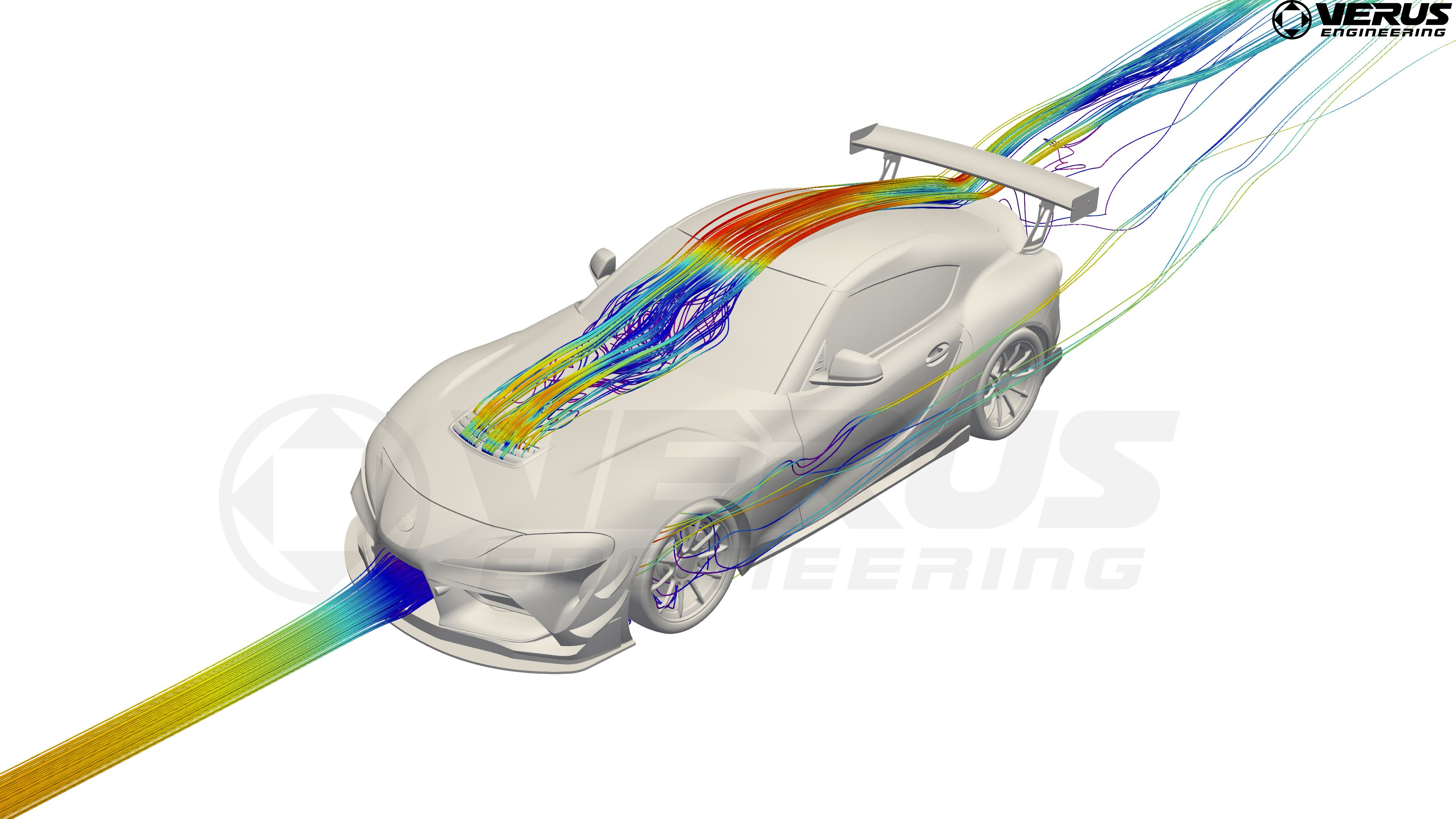
Verus Engineering Hood Louver Testing & Data - Mk5 Toyota Supra